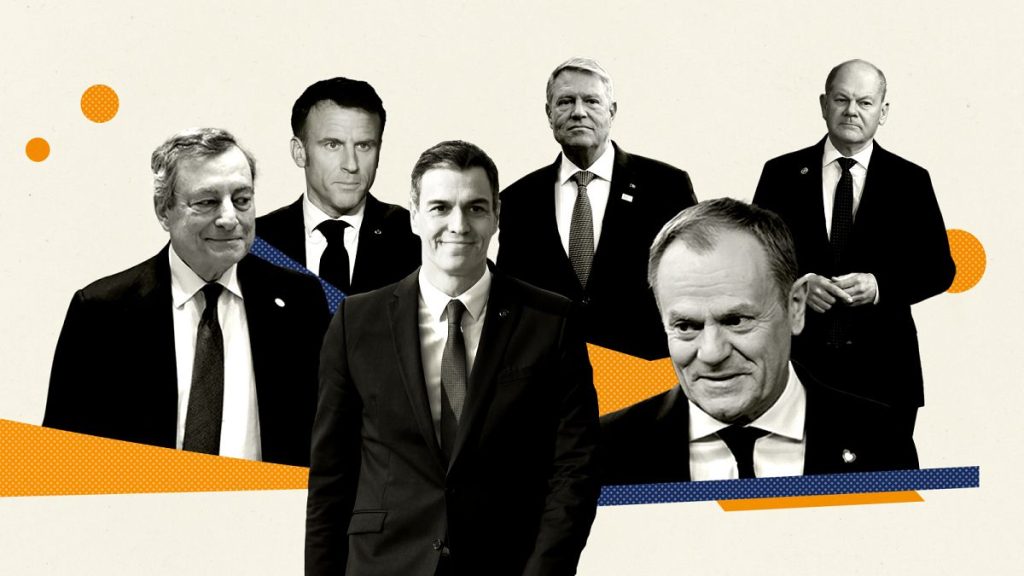2024: A Year of Seismic Shifts in European Politics and the Rise of New Power Dynamics
The year 2024 has been a tumultuous one for European politics, marked by electoral upheavals, economic uncertainties, and the resurgence of geopolitical tensions. These events have reshaped the political landscape, creating both winners and losers in the intricate power dynamics of the European Union. The unexpected return of Donald Trump to the US presidency has added another layer of complexity, with potential ramifications for transatlantic relations and European security. Against this backdrop, certain leaders have skillfully navigated the turbulent waters, leveraging opportunities to enhance their influence, while others have found themselves struggling to maintain their footing.
Winners of the Political Earthquake: From Warsaw to Madrid
Poland, once considered the EU’s "problem child," has experienced a remarkable turnaround under the leadership of Donald Tusk. His pro-European stance, particularly on the critical issue of Ukraine, has resonated in Brussels. Tusk’s commitment to realigning Poland with EU principles, after the previous government’s controversial judicial reforms, has further strengthened his position. Despite facing domestic challenges from right-wing rivals, he has managed to wield considerable influence within the EU, exemplified by the Commission’s approval of his controversial plan to suspend asylum rules. Similarly, Spain’s Pedro Sánchez, despite the general anti-establishment sentiment expressed in the EU elections, has emerged as a figure of relative stability. Maintaining a strong delegation in the European Parliament, Sánchez has effectively translated this into influence within the Commission, securing key portfolios for Spanish officials.
Beyond currently serving leaders, former Italian Prime Ministers Mario Draghi and Enrico Letta continue to exert influence, shaping the EU’s economic agenda through their influential reports. Their analysis of Europe’s lagging economic growth, coupled with proposed solutions, has resonated deeply within the Commission, particularly in the face of renewed trade tensions with the US under the Trump administration. Their recommendations for stimulating growth, including a new subsidy fund and regulatory reform, have become central to the Commission’s priorities.
Losers Grappling with Instability: The Fall from Grace of Macron and Scholz
In stark contrast to Tusk and Sánchez, French President Emmanuel Macron has experienced a disastrous year. The surge of the far-right in EU elections, followed by the loss of his parliamentary majority, has significantly weakened his position. The collapse of his initial attempt to form a new government underscores the deep political divisions within France and the challenges Macron faces in regaining control. His diminished stature domestically inevitably translates into reduced influence on the European stage. Similarly, German Chancellor Olaf Scholz has struggled to maintain stability amidst coalition infighting. Germany’s traditional role as the EU’s driving force has been undermined by repeated policy U-turns on key issues, creating an impression of unreliability. The collapse of his coalition government further exacerbates the political uncertainty in Germany and casts a shadow over its ability to play a constructive role in European affairs.
Romania also faces a period of uncertainty following the conclusion of President Klaus Iohannis’s term. The annulment of the first round of presidential elections due to allegations of foreign interference has created a power vacuum, raising concerns about Romania’s stability and its ability to effectively engage with the EU. Iohannis’s own future, once considered a potential candidate for a top EU or NATO position, remains unclear, further contributing to the sense of uncertainty surrounding Romania’s political trajectory.
Figures to Watch: Navigating a Complex Landscape
Mark Rutte, the long-serving Dutch Prime Minister, experienced both setbacks and triumphs in 2024. His resignation after 14 years in office was followed by a controversial coalition with the far-right, raising concerns about the direction of Dutch politics. However, his subsequent appointment as NATO Secretary General presents a significant opportunity to shape the transatlantic alliance, albeit in a challenging geopolitical environment. The resurgence of Trump, with his potential to disrupt NATO’s cohesion, adds another layer of complexity to Rutte’s new role.
Viktor Orbán, the Hungarian leader, remains a controversial figure within the EU. His presidency of the EU Council was met with widespread criticism and boycotts due to his close ties with Russia and China. Despite facing legal challenges and political pressure, Orbán has successfully consolidated his power base within the European Parliament through the formation of a far-right alliance, potentially gaining further influence with the return of Trump.
Finally, Keir Starmer, the newly elected UK Prime Minister, offers a glimmer of hope for improved EU-UK relations after years of Brexit-related tensions. His promise to enhance economic and security cooperation with the EU resonates in Brussels, particularly given the shared challenges facing both sides. However, his cautious approach and reluctance to rejoin the single market suggest that progress may be gradual.
The Shifting Sands of European Power: Navigating Uncertainty and Opportunity
2024 has been a year of profound change in European politics, with established power structures challenged and new dynamics emerging. The winners have been those who have adeptly navigated the turbulent waters, seizing opportunities to enhance their influence. Conversely, those who failed to adapt to the changing circumstances have seen their power diminish. As Europe grapples with economic uncertainty, geopolitical tensions, and the unpredictable impact of a resurgent Trump administration, the ability to adapt and forge strategic alliances will be crucial for shaping the future of the European project. The figures to watch in the coming years will be those who can effectively navigate this complex and ever-evolving landscape.














